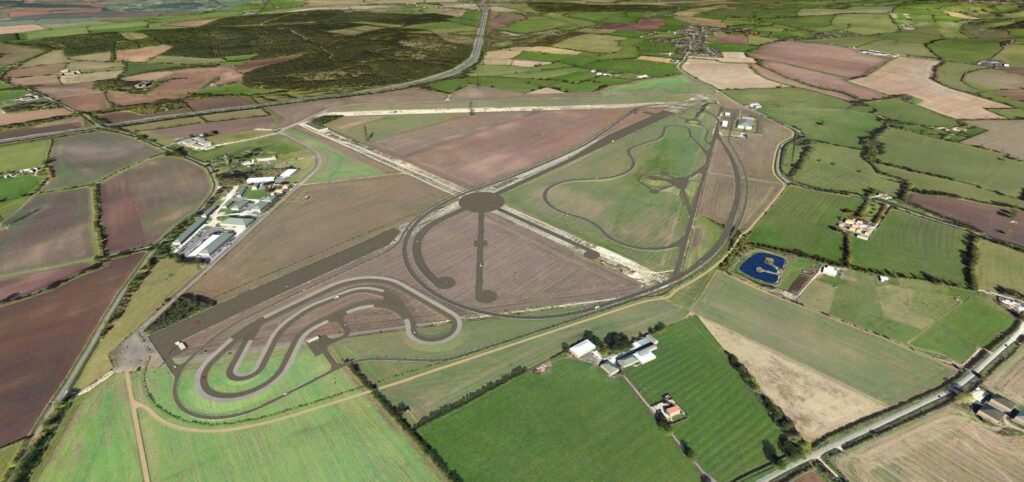CAVWAY, a new UK proving ground dedicated to the development and testing of autonomous and connected vehicles, has received planning permission with building work now well underway. The result of a consortium between Prova Developments Ltd and IDIADA Automotive Technology (UK) Ltd, CAVWAY is expected to be operational by the end of the year.
The new proving ground will sit partly on the site of the former Oakfield Airfield in Buckinghamshire, halfway between Oxford and Aylesbury. It is expected to occupy a total area of 77ha and feature over 105,000m2 of tracks, loops and intersections. The old airfield’s hangar will be preserved to allocate workshops and offices.
CAV development and ADAS validation testing programs
CAVWAY will include a comprehensive set of highway junctions, all within a fully connected, controlled, repeatable and safe environment to perform all required development and validation testing programs for ADAS and CAV development, according to the latest Euro NCAP and regulation requirements.
A wide variety of testing possibilities for development and validation projects will be possible as a result of fully configurable V2X, C-V2X and 4G/5G network coverage. It will therefore be possible to control everything the vehicle ‘hears’ and ‘sees’ in order to set up all kinds of tricky edge-case traffic scenarios, facilitating seamless integration between experimental and virtual development work. Additionally, CAVWAY will offer vehicle simulation and cybersecurity testing in normal and abnormal conditions, as well as connectivity testing and benchmarking, among other services.
CAVWAY is part of a central UK government initiative by the Centre for Connected & Autonomous Vehicles (CCAV). Overall, the initiative provided £100m (US$138m) of government funding, which was match-funded by industry to create a network of testing sites across the UK to support the emerging industry for connected and autonomous technology.
Specialized in the development and testing of autonomous and connected vehicles, CAVWAY is located near Oxford and will be one of the most comprehensive facilities of its kind in the UK. The facilities are expected to be operative in Q4 2021.


